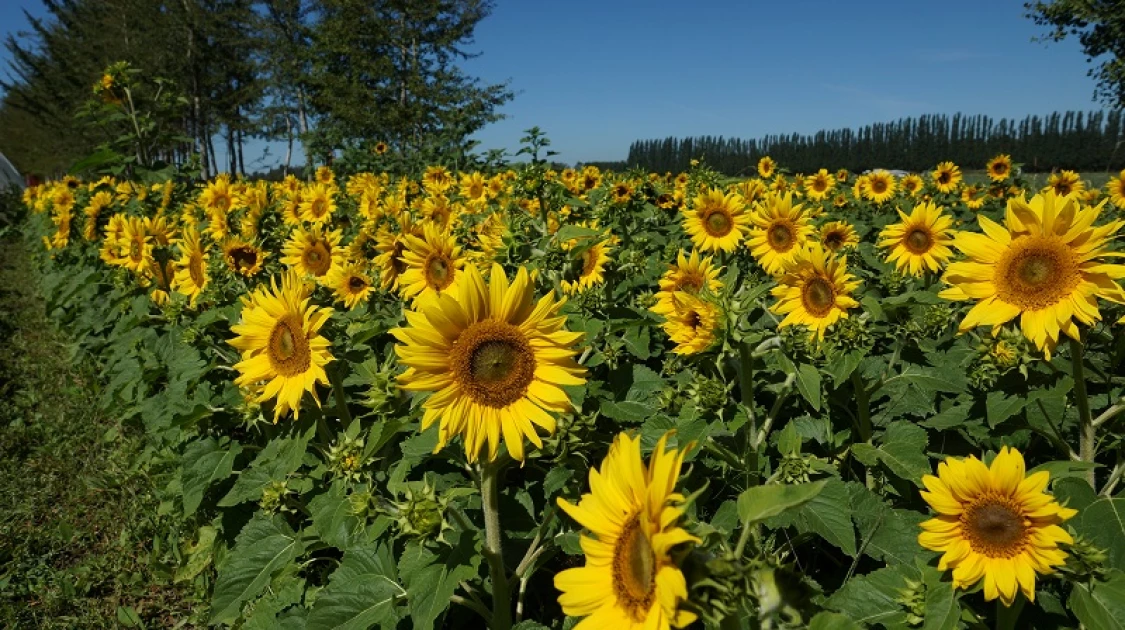DIAZ: Agribusiness, killing two birds with one stone

Photo / Courtesy

Audio By Vocalize
Months hardly go by before images surfaces of farmers throwing away tomatoes or chopping up cabbages for livestock following a bumper harvest every once in a while.
Many of this
intriguing instances have occurred in Africa and in particular parts of
very fertile land regions.
Such occurrences are
however mostly juxtaposed with picture of people short of food, in
counties in semi desert and arid hard climate areas, plus climate changes
causing drought is a big challenge for food production in the region .
Put together, this two
images are perplexing to the wider public and tell of a great disconnect in the
agriculture sector and participating value chain players.
On one hand, abundance
and waste paints a picture of thriving products but also reveal a mismatch in
other parts of the value chain such as access to marketplaces which would be of
benefit to thousands of small-holder farmers across the country.
On the other thoughts
, the image of millions facing acute starvation in the face of plenty elsewhere
anchors down the mismatch in growth of agriculture in a Region that can
adequately produce food.
Agribusiness
In my opinion,
agribusiness refers to creating a complete value chain involving production,
distribution, retail and getting products to end users/customers and providing
value addition to manufacturers and various industrial business.
According to data from
the United Nations (UN) the value add of agriculture is estimated at 3.5
trillion dollars or an equivalent four percent of global GDP and supporting
nearly one third of the global workforce.
The chain begins
largely with input providers who make available resources such as fuel, feeds,
fertilizer, chemicals, labour and machinery.
At the end of
production, other service providers are mostly middlemen including wholesalers,
marketers, distributors and retailers who support movement of products to
deliver the final products for consumption. The pride of nations is to see
thier products sold globally and branding buy "Africa Build Africa".
Agribusiness in
advanced economies has yielded in big multinational corporations such as
Monsanto and Deere & Company.
Top agriculture
producers features developed economies such as China, US, Russia, France and
Germany where production largely features irrigation, mechanisation and
technology and new best agro practices that are being adopted globally.
In Sub-Saharan Africa
however, production in the sector is much lower despite a greater reliance on
the sector as the main occupation and having the land , rivers, water and
resources.
According to the Food
and Agriculture Organisation (FAO), 67 percent of the world’s population is
dependent on agriculture which makes up an estimated 39.4 percent of GDP and 43
percent of global exports.
Kenya which falls
within developing economies, the agriculture sector has opportunities,
and currently facing competitive forces including food importation ,
having recorded contractions all year after a series of failed rain seasons.
Moreover, the sector
has suffered from investment of arable land especially to real
estate business too.
Reforms
According to the World
Bank Group, the challenge in bringing agribusiness to life in countries in East
Africa, per say, would involve integrating small-scale farmers into
the market to make the sector stronger which would reduce the country’s reliance
on exports.
The African food
market was estimated to have a value of 313 billion dollars in 2013, with the
value tipped to triple by 2030 with investments in infrastructure, smart
business and trade policies.
The reforms would help
tackle post-harvest losses, build storage facilities and dedicated agriculture
port terminals and facilities for processing agricultural products.
At the same time, the
infrastructure would help reduce transaction costs and help subsistent farmers
to scale up to commercial agriculture.
Financing
Like in any other
business, agribusiness could do with more financing to achieve set
targets.
For instance here
Kenya, Bidco Africa is looking at agro solutions for the farmers, and
is buying thousands of tones of Soya and sunflower for raw materials to
produce edible oils and develop by products for animal feeds, plus
support Kenyan farmers gain more revenue, in 2023 and beyond.
While developing
countries may lack in adequate financing, development finance institutions
(DFIs) can step in to provide the much needed resources.
The World Bank Group
and its private sector financing arm, the International Finance Corporation
(IFC) have been mobilizing financing for the sector while crowding in other
private sector investments to the sector.
Since 2000, the pair
have mobilized over one billion dollars in an estimated 10 countries in Latin
America including Colombia and Bolivia.
Closer home in
Madagascar, a World Bank Funded project has helped cocoa farmers improve the
value of exports while sorghum producers have benefited in Cameroon.
The World Bank has
also supported government reforms in Cote d’Ivoire, Ethiopia, Ghana, Senegal,
Kenya and Malawi including the development of warehouse receipt systems to
improve integration of producers, traders and processors into value chains.
Further support should
be provided by governments and other players in the private sector in
de-risking SMEs in the agriculture sector and support to access loans and
innovative insurance which could cushion against risks brought forth by shocks
such as climate change effects/droughts.
By ensuring a thriving
agricultural sector, Kenya could easily settle its long-standing challenge of
food insecurity and re-capture the much needed value for millions of
small-holder farmers across the country.
The future growth of
agri-business will need more partnerships with development partners,
international programs, and investment by private and public projects. We look
forward to a stronger and better economic position towards second half 2023.
Chris Dias, Group Director Bidco Africa - @diazchrisafrica


Leave a Comment